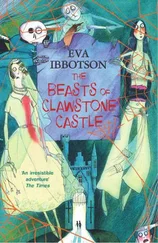Ibbotson, Eva - Magic Flutes
Здесь есть возможность читать онлайн «Ibbotson, Eva - Magic Flutes» весь текст электронной книги совершенно бесплатно (целиком полную версию без сокращений). В некоторых случаях можно слушать аудио, скачать через торрент в формате fb2 и присутствует краткое содержание. Год выпуска: 2011, Издательство: Macmillan Publishers UK, Жанр: Старинная литература, на английском языке. Описание произведения, (предисловие) а так же отзывы посетителей доступны на портале библиотеки ЛибКат.
- Название:Magic Flutes
- Автор:
- Издательство:Macmillan Publishers UK
- Жанр:
- Год:2011
- ISBN:нет данных
- Рейтинг книги:3 / 5. Голосов: 1
-
Избранное:Добавить в избранное
- Отзывы:
-
Ваша оценка:
- 60
- 1
- 2
- 3
- 4
- 5
Magic Flutes: краткое содержание, описание и аннотация
Предлагаем к чтению аннотацию, описание, краткое содержание или предисловие (зависит от того, что написал сам автор книги «Magic Flutes»). Если вы не нашли необходимую информацию о книге — напишите в комментариях, мы постараемся отыскать её.
Magic Flutes — читать онлайн бесплатно полную книгу (весь текст) целиком
Ниже представлен текст книги, разбитый по страницам. Система сохранения места последней прочитанной страницы, позволяет с удобством читать онлайн бесплатно книгу «Magic Flutes», без необходимости каждый раз заново искать на чём Вы остановились. Поставьте закладку, и сможете в любой момент перейти на страницу, на которой закончили чтение.
Интервал:
Закладка:
No one could help him. Even Boris, who regarded Tessa as his special charge, had no idea where she was and Klasky, when questioned, opened an eye, said vaguely, ‘Dear little thing . . . brought The Button to Sachers . . .’ and passed out at the foot of a cut-out tree.
‘Going to find her,’ said Maxi, draining his glass. ‘Going to find her . . . going to –’ and lurched away in the direction of the dressing-rooms.
At first Tessa had been buoyed up and sustained by the general jubilation that followed the fall of the curtain. But slowly, inexorably, the pain that had been lying in wait for her crept closer, could not be ignored and soon took over her whole self in a way which seemed entirely physical.
As soon as she had tidied up backstage, she slipped away to the West Tower. But before she could be alone, she had to go and say good night to the aunts for she was aware how badly she had neglected them during the past week.
She found them preparing for bed, their grey plaits hanging down their backs and, as always, their faces lit up at the sight of her. But when she had left again to go up to her room they turned to each other, suddenly stricken and helpless.
‘What is it?’ enquired Tante Tilda piteously. ‘What makes her look like that? Her eyes . . .’
Tante Augustine shook her head in bewilderment. ‘Before,’ she said gruffly, ‘one could at least brush her hair for her. But now . . .’
‘She’ll be all right when she’s married to Maxi?’ said Tante Tilda beseechingly. ‘She’ll be all right then, won’t she, Augustine?’
But the Duchess was silent. Tomorrow she would forget again, would continue to press for the marriage that was so suitable, so dynastically right. But tonight she was still caught by the music’s truth and she did not speak.
Tessa had reached her room, but she did not prepare for bed – instead, she climbed the round, stone steps which led up to the tower roof. It was for this view, this freedom, that she had chosen the plain, round room out of all the others in the castle, and now, stepping out, she found herself under a brilliant canopy of stars.
She was alone now and there was no escape. No more than one can ignore what Van Gogh saw in an olive tree or Rembrandt in the lineaments of age, could she forget what had happened to her when Guy had held her in his arms.
Here it was, then. Love. Love as strong, as specific, as if it were some metallurgical process welding her thoughts, her desires, her soul to a man who scarcely knew she existed. All those celestial shriekings in Tristan and Isolde, all those swords plunged by heaving tenors into their own chests, had been nothing more than case histories, describing this thing which was as real, as hard as stone.
Oh, God, thought Tessa; why? The uselessness of it when he loved Nerine and would, in any case, never have stooped to her. To ‘why?’ there was no answer except in the whim of fate. When, then? This was easier to answer. Almost at once, had she known enough to read the signs. That first time when he had taken her home and placed his fingers against her cheek, measuring the line of her hair . . . And again in the Stadtpark when he spoke of his foster-mother and his voice had grown so warm and tender . . . And at Sachers. Yes, she had certainly known at Sachers.
And I wanted to consult Professor Freud, thought Tessa. Well, the joke’s on me. With the appalling clarity of her condition, she saw Guy’s hand as he pushed a lock of hair impatiently from his forehead, saw his mocking smile as he drew the curtains of the alcove at Sachers, the curve of his throat as he bent to take the strawberries from her in the woods.
Do I know everything about him already? she thought, bewildered. And back came the answer: everything. You are branded with this knowledge, you will have it for the rest of time.
But this was too much. She took a deep breath, inhaling the night air scented with hay, with honeysuckle and the rich waters of the lake, listened to the music and laughter coming from the theatre and tilted her head at the stars. She had never seen them so brilliant and clear. Cassiopeia, Orion, the great girdle of the Milky Way – and her own birth sign, Gemini. With such staggering beauty in the world, how could anyone not rejoice?
It seemed, however, that ‘anyone’ could. For at once came the age-old cry of lovers since time began. ‘What are the stars if I am not gazing at them with him? What is beauty except something that we share?’
Alone and appalled, Tessa stared at the meaningless heavens. ‘This,’ said the Princess Theresa-Maria Rodolphe Caroline of Pfaffenstein, lifting her chin, ‘this I will fight.’
‘May I help Your Highness?’ The Littlest Heidi stood before Maxi as he clambered over yet another pile of scenery in his relentless, and so far hopeless, search for his beloved.
‘I’m looking for the Princess of Pfaffenstein. For Tessa,’ he added, for he was endeavouring to embrace democracy.
But his eyes rested, with a pleasure he found it impossible to conceal, on the entrancement that was Heidi Schlumberger dressed as a rabbit. It was thus that she had danced to Tamino’s flute. Now, though she had removed her mask, she was still encased in soft, beige fur with a white fluffy tail. The huge blue eyes, the golden curls tumbling over her pelt, were almost too much for Maxi. He had not sought her out since they met at the film show but the little dancer had seldom been absent from what passed, in Maxi’s mind, for thoughts.
‘I haven’t seen her for quite a while,’ said Heidi. ‘Shall I help you look? She may still be doing something in one of the dressing-rooms. You can’t imagine how hard she works.’
Maxi, who could imagine it all too well, wrinkled the nose which came to him straight from Phillip II of Spain and said he would be grateful. It was necessary, he said, for him to speak to Tessa that very night.
So they searched the dressing-rooms, the wardrobe, the Green Room, but there was no sign of Tessa.
‘Could I perhaps get Your Highness some more champagne?’ suggested the Littlest Heidi when they returned, defeated, to the stage. ‘There are still bottles and bottles in the great hall.’
Like everybody else, she knew that the prince was to marry Tessa and thoroughly approved the match. She was a modest girl and when she gazed as she gazed now – rapt and awed – into his face, it was not marriage that she had in mind.
Maxi indicated his approval. ‘Only you will want some too. We’ll go together.’ Damn it, there were limits to what a fellow could do and there was still tomorrow. ‘I know a short cut,’ he said.
The ‘short cut’ – through the trophy room, the picture gallery and the library – was, perhaps, not a sensational time-saver but Heidi made no demur. For the library, when they reached it, was quite deserted and splendidly provided with statues, niches and literary nooks. At exactly the right moment, she stumbled over a fluffy Afghan rug and was prevented from falling by the heroic prince. With exactly the right, almost imperceptible wriggle she indicated that his hands, now resting on the indescribable delights of the softly rounded rabbit tail, were not giving offence. And because the prince’s hands were now engaged, she felt emboldened to enquire whether His Highness would not wish her to loosen his collar, knowing how much the military suffered in their uniforms.
‘You can call me . . . Maximilian,’ murmured the Prince, as her plump little hands fluttered up to his throat.
But this the Littlest Heidi, though otherwise so totally obliging, felt unable to do.
Nerine was feeling aggrieved. She had worked ceaselessly and unstintingly all that day on her surprise for Guy. After all, she was not seventeen any longer; it had been no easy task to produce the miracle that was her own appearance en grande tenue. Then, just because she had dozed off for a few minutes at the end of that absolutely interminable opera, Guy was in a mood. She could tell he was although he had said nothing, only escorted her up to the boudoir which adjoined the state bedroom. Naturally, she had not been able to face a party which consisted largely of drunken theatricals, but though Guy had accompanied her upstairs, accepting the excuse that she was tired, he showed no inclination to leave her alone and let her prepare for bed.
Читать дальшеИнтервал:
Закладка:
Похожие книги на «Magic Flutes»
Представляем Вашему вниманию похожие книги на «Magic Flutes» списком для выбора. Мы отобрали схожую по названию и смыслу литературу в надежде предоставить читателям больше вариантов отыскать новые, интересные, ещё непрочитанные произведения.
Обсуждение, отзывы о книге «Magic Flutes» и просто собственные мнения читателей. Оставьте ваши комментарии, напишите, что Вы думаете о произведении, его смысле или главных героях. Укажите что конкретно понравилось, а что нет, и почему Вы так считаете.












